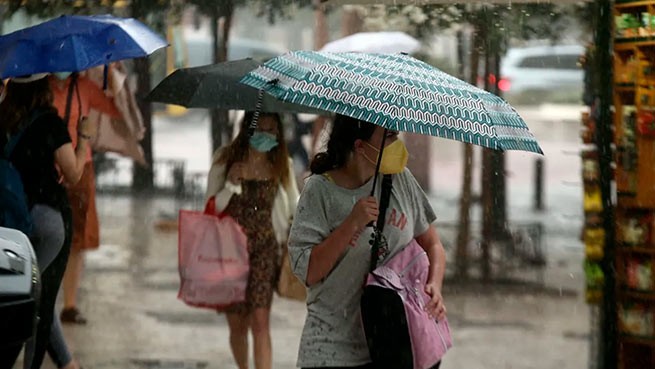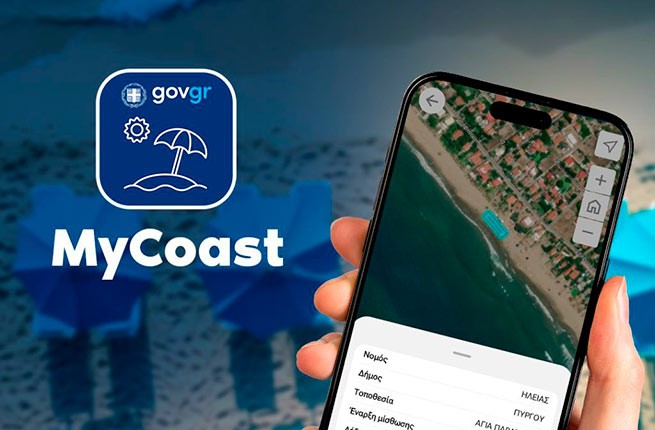Freelancers, those wishing to challenge the established amount of imputed incomemust be disclosed to the tax authorities all their assets and the expenses they incur.
Essentially, freelancers will have to show all: from bank accounts and cash to safes, debit, credit and prepaid cards, cryptocurrencies, as well as expenses for electricity, telephone and water, travel, etc.
ΑΑΔΕ message to more than 740,000 freelancers clearly states: “To dispute a 'tax bill' by agreeing to a tax audit, you must disclose all of your documents and existing advance payments.”
Who is exempt from taxes
It's about not about those freelancers who have objective causes (military service, hospitalization, prison, etc.) and grounds for challenging the alleged “iska” and about those who disputes the tax, agreeing to a tax audit. In particular, objective reasons and supporting documents that must be submitted in each case, to prove the impossibility of conducting business, the following:
- Raising a child within 12 (twelve) months after the birth of a child, or childbearing, or raising a child
- Birth certificate
- Judgment and evidence of its finality or proof of service of the judgment to the competent prosecutor and evidence that the decision has not been appealed.
- A certificate of placement of the child into foster care and a certificate of registration of the minor in the National Registry of Minors, the National Registry of Approved Foster Children, or the Registry of Unaccompanied Minors.
- Natural disasters/natural disaster: decision/confirmation of the competent authority to classify the enterprise as affected
or a decision/decree of the competent authority to provide public assistance to cover damage caused by a natural disaster, as first aid or a grant, or an advance payment of a grant (Law 4797/2021 (A 66)) - The total or partial impossibility of carrying out an activity lasts for the period covered by the declaration of a decision taken in accordance with the provisions of articles 25 and 30 of Law no. 4662/2020 (A΄27), the area where, depending on the circumstances, the enterprise is established or is located, in a state of civil defense emergency.
- Revocation of permission to conduct individual entrepreneurial activities or to carry out professional activities
- Decision of a government agency to revoke a permit
- Prohibition on opening an institution or other place of business or professional activity
- Decision of a government agency to impose a ban
- Other force majeure circumstances (for example, serious health problems, an accident with the taxpayer or his child for which hospitalization is not required) – a medical certificate from a hospital or clinic.
“Extension” for sixty days
For almost two months after the income tax filing deadline, freelancers who intend to challenge the tax will have to fill out an extensive questionnaire in a special application that will be created by AADE by mid-May. In it, they will have to open their documents about the property and living conditions of not only the taxpayer himself, but also his spouse/partner and dependent family members, which will be assessed during the tax audit. If the form is not completed, the right to challenge the tax is lost.
Filing a dispute digitally
According to the decision of AADE Governor Giorgos Pitsilis (A.1055/2024), challenges to the minimum imputed business income will be carried out digitally. The decision provides, in particular, the following:
- deadline for filing an application to challenge the presumption on objective grounds (paragraph 3, no. 28A, ΚΦΕ),
- supporting documents to be submitted where appropriate,
- procedure, conditions and deadline for filing an application for an inspection (αρ. 23 ΚΦΔ),
- deadline for the inspection (παρ. 4, αρ. 28Α ΚΦΕ).
In particular, taxpayers who dispute annual imputed business income must submit a dispute application through the new application on the myAADE digital portal. Depending on the cause of the dispute, there are the following options.
Request for inspection
In this case, the procedure takes place in two stages:
Step 1: The taxpayer must indicate on his/her timely return that he/she wishes to challenge the minimum income by requesting a tax audit (codes 443-444 in E1 of the income tax return).
Step 2: If the corresponding code has already been filled in on the E1 return, the taxpayer must, no later than 60 days after the deadline for filing the return, fill out a questionnaire about the assets and living conditions of himself, his spouse/partner and dependents, which will be assessed during the tax audit.
The questionnaire is filled out in a special AADE digital application, which will be available in the first half of May. The inspection must be carried out within 12 months of notification of the inspection.
Questionnaire
An appendix to the decision by AADE Governor Georgios Pitsilis reveals the entire questionnaire, asking taxpayers to fill out 15 different tables. In particular, they are asked to fill out the following information:
1. Bank accounts, personal or business, in Greece and abroad throughout the year, to which an audit request is submitted. This includes accounts opened and closed within the same tax year, personal, business or personal/financial, or personal and business accounts in Greece and abroad. You must specify the account type, financial institution, country, account number, beneficiaries, beginning and ending balance.
2. Information on investments/participations and other securities in Greece and abroad. Information is requested on the type of investment (stocks, shares, mutual funds, etc.), the amount of capital invested, the method of acquisition (purchase, inheritance, gift), year of acquisition, etc.
3. Rent of safe deposit boxes. By clicking on the “Yes” button, the taxpayer must indicate the financial institution in which the safe deposit box is located, the country, beneficiaries and co-beneficiaries.
4. Securities/works of art, collections, valuables and other items for the tax year covered by the audit request must be detailed with description, year of acquisition, method of acquisition, purchase price and owner information.
5. Vehicles: cars, motorcycles, bicycles, water and air vehicles are scanned indicating the registration number, year, cost and method of acquisition with a request to the tax office, up to the notification port (for water vehicles).
6. Cash. Any cash that the taxpayer and members of his family may have had in any currency at the beginning and end of the year must be declared.
7. Cryptocurrency. Any cryptocurrencies that the taxpayer and his family members may have must also be entered into a special table indicating the beneficiary and their value at the beginning and end of the year.
8. Property: For owner-occupied property, whether a primary residence, a secondary residence or a vacation home, the type of property, its use, address, electrical and water supply number, and annual electrical and water costs must be provided.
9. Telephone numbers. Separate table for landline and mobile phone charges, showing bill type, biller, user name, landline or mobile phone number, provider and annual charge.
10. Cards. All types of cards – debit, credit and prepaid – of the taxpayer and his family members must be reported along with the annual transaction amount.
11. Vehicle insurance. A special table for car and two wheeler insurance policies showing registration number, name of insurer, term of insurance and annual premiums.
12. Insurance schemes. A separate table should list all insurance plans: life, health, retirement, death, personal accident and everything else for all family members.
13. Property insurance. Another table completes the insurance policy puzzle, this time for real estate, detailing the type of insurance, name of the insurance company, expiration date, property address and, of course, premiums.
14. Fees for tuition, tutoring, meals, sports. The penultimate table shows the total annual expenses for tuition fees in all types of schools in Greece and abroad, for all types of tutoring, including the cost of accommodation and living expenses, as well as the amount of any additional payments such as exam fees, transport, meals and accommodation, sports activities.
15. Travel. In the last table, you need to provide details of domestic and international travel including destination, duration in days, accommodation details, travel expenses, accommodation and food.







More Stories
Greek products on their way to France
Reduced fees for POS transactions, limited bank fees
Easter 2024: more expensive than travel, more modest table